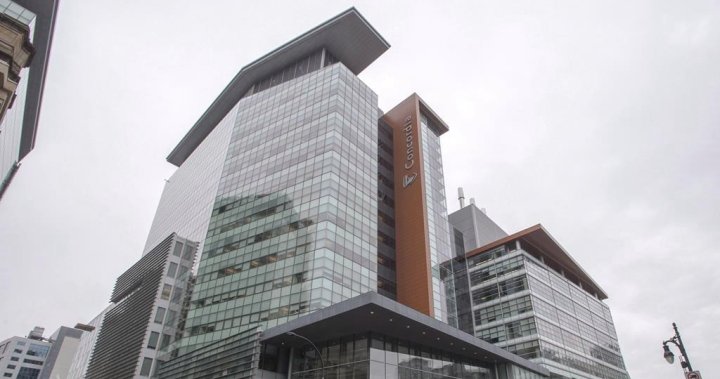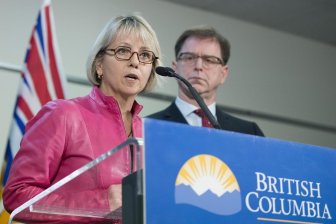Quebec’s Higher Education Minister Danielle McCann confirmed on Friday a return to in-person classes for university and CEGEP students across the province for the fall semester with new COVID-19 guidelines.
Physical distancing rules will not apply in the classroom and masks will no longer be required when students are seated in a classroom setting, at the library or while eating. They will remain mandatory, however, in all other situations.
Outside the classroom, such as gyms, cafeterias or singing activities, the two-metre rule will be maintained.
McCann had previously announced that a return to in-person classes without physical distancing was contingent on least 75 per cent of Quebecers between the ages of 16 and 29 being fully vaccinated.
Read more:
Quebec asks universities and colleges to reopen this fall without physical distancing
While that age group is currently lagging behind other age groups in Quebec in term of vaccinations, she anticipates the target will be reached by the time classes resume.
“What we have to remember is that 82 per cent of all students in Quebec — CEGEP, college or university — have had their second dose or made an appointment,” she told Global News.
“So it’s a good chance that before the end of August, it will be 82 per cent.”
The province saw a surge in bookings for appointments on Friday after the government announced yesterday it would be implementing a vaccine passport system.
The details of the system have yet to be unveiled, but Quebec premier François Legault said that some non-essential services would not be accessible to those who aren’t fully vaccinated.
That could also apply to universities and CEGEPs as well.
While extracurricular activities including sports are expected to resume at most post-secondary institutions, the ministry said in a news release that its objective is to allow those activities only for students who are adequately vaccinated.
Read more:
Vaccination appointments double in Quebec after province announces vaccine passport plan
Also, different rules will apply to institutions where the epidemiological risk is judged to be greater.
Spencer Beaulne, who will be attending Concordia University as a first-year student, thinks allowing the return of students to campus is the right decision.
He’s especially eager for a return to in-person learning after spending the last year at Dawson College entirely online.
“Anything that I can get like a social interaction with another student would be great,” he said, adding he’s OK with the idea of vaccine passports for extracurricular programs.
“It will just ensure everyone’s safety.”
Read more:
The psychological health of Quebec university students is concerning according to survey
McCann agreed that social interactions are key for students.
“It’s been difficult for them,” she said of online learning and the absence of contact with other students and staff.
“I think it’s going to help a lot the mental health of our students — even their families — because, you know, parents were concerned … so this is great news.”
All higher education establishments will be required to have a fallback plan should it be required.
“That’s the worst-case scenario,” McCann said. “That’s if really the situation deteriorates and we need to have more measures or if there’s an outbreak.”
In an online memo to staff and students, McGill University announced it would not be following the government’s no-mask policy. Students will be required to wear masks in all indoor spaces, including classrooms.
The university also said it is waiting for further information from the government in terms of allowing extracurricular activities for vaccinated students.
— with files from Global News’ Tim Sargeant

View link »
© 2021 Global News, a division of Corus Entertainment Inc.
















































